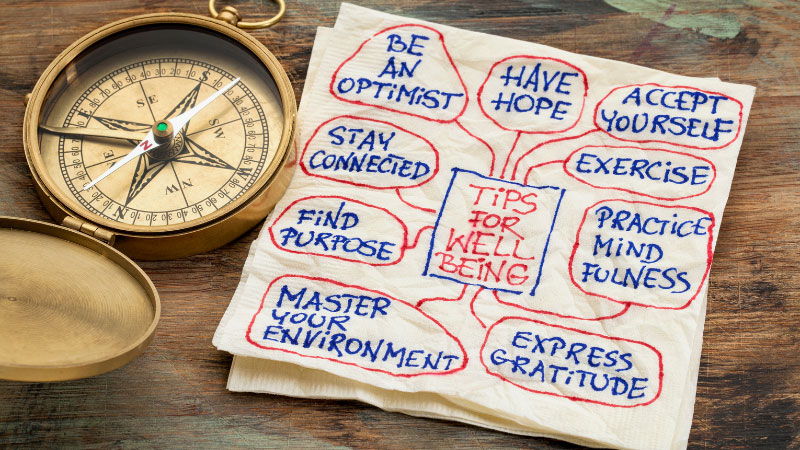In today’s fast-paced world, with constant distractions from digital devices, social media, and multitasking, it’s easy to lose focus and feel overwhelmed at work. Whether you’re managing multiple projects, answering emails, or dealing with client demands, maintaining mental clarity and staying focused can be challenging. One effective strategy to improve concentration, reduce stress, and boost productivity is practicing mindfulness.
Mindfulness is the practice of paying deliberate attention to the present moment without judgment. By incorporating mindfulness techniques into your daily work routine, you can improve focus, enhance decision-making, and promote a sense of calm amid the busyness. This article explores how to practice mindfulness during work, offering practical tips to help you stay focused, productive, and grounded throughout your day.
What is Mindfulness?
Mindfulness is derived from Buddhist traditions but has been widely adopted in Western psychology as a tool for mental health and well-being. It involves intentionally focusing on your thoughts, feelings, bodily sensations, and the surrounding environment in a non-reactive way. Instead of being caught up in past regrets or future worries, mindfulness encourages you to stay grounded in the present moment.
Research has shown that practicing mindfulness regularly can help reduce stress, enhance emotional regulation, increase productivity, and improve overall mental clarity. In the workplace, these benefits can help you navigate challenges more effectively, work more efficiently, and maintain a sense of well-being throughout your day.
Why Mindfulness is Important at Work

In the modern workplace, distractions are everywhere. From the constant ping of emails and messages to the pressure of meeting deadlines, staying focused can feel like an uphill battle. Mindfulness can help you cut through this noise and bring your attention back to the task at hand.
Here are some specific reasons why mindfulness is particularly important at work:
Improves Focus and Concentration: By practicing mindfulness, you train your brain to stay focused on one task at a time, reducing the urge to multitask. This can lead to better performance and faster completion of tasks.
Reduces Stress: Work-related stress is a major contributor to burnout and mental fatigue. Mindfulness can help you manage stress more effectively, making it easier to cope with high-pressure situations and maintain a positive outlook.
Enhances Emotional Intelligence: Mindfulness increases your awareness of your emotions and reactions, allowing you to respond to situations more thoughtfully rather than impulsively. This can improve communication, conflict resolution, and decision-making.
Boosts Creativity and Problem-Solving: Mindfulness encourages you to approach challenges with an open mind and a clear perspective. This can help you think more creatively and find innovative solutions to problems.
Promotes Work-Life Balance: By cultivating mindfulness, you can develop a healthier relationship with your work. This allows you to recognize when to take breaks, set boundaries, and avoid burnout.
Tips for Practicing Mindfulness During Work

Incorporating mindfulness into your workday doesn’t require large amounts of time or a complete overhaul of your routine. With some simple adjustments, you can practice mindfulness throughout the day, even while juggling tasks. Here are some practical tips to help you stay focused and centered during your work hours:
1. Start Your Day with a Mindful Routine
The way you begin your day sets the tone for the rest of it. Start your morning with a short mindfulness practice to help you feel grounded and present as you begin work. This could be as simple as taking five minutes to focus on your breath, practicing gentle stretches, or doing a brief meditation.
A mindful morning routine can help you center yourself and bring a sense of calm and clarity before you dive into the day’s tasks. It’s a great way to reduce the feeling of being overwhelmed before you even start.
2. Focus on Your Breath
One of the easiest ways to practice mindfulness during work is by focusing on your breath. When you find yourself feeling stressed or distracted, take a moment to close your eyes (if possible) and pay attention to your inhalations and exhalations. Breathe in deeply, hold for a few seconds, and exhale slowly. This simple technique can help calm your mind, reduce stress, and bring your attention back to the present moment.
Breathing exercises can also help you reset your focus if you feel overwhelmed by too many tasks or if your mind starts to wander. By bringing your awareness to your breath, you can create a mental space where distractions don’t have as much power.
3. Practice Single-Tasking
Multitasking might seem like a way to get more done, but it can actually reduce your productivity and make it harder to focus on quality work. Mindfulness encourages you to be present with one task at a time, which can lead to deeper focus and better results.
Try to dedicate uninterrupted time to each task. Set specific blocks of time for each project and commit to working on just that task during that period. If your mind starts to wander, gently bring your focus back to the task at hand.
4. Take Short Mindful Breaks
It’s easy to get caught up in the grind of work, but regularly stepping away from your desk for a short break can improve your focus and energy levels. Use your breaks to practice mindfulness.
Take a five-minute walk outside, stretch, or do a few deep breathing exercises. These brief moments of mindfulness can help reset your mental state and prevent burnout. During these breaks, try to be fully present with your body and surroundings. Pay attention to the sensations in your body, the sights and sounds around you, and the feeling of your breath.
5. Use Mindful Listening in Meetings
Meetings can be a major source of distraction at work, especially when your mind starts to wander or you’re thinking about your to-do list. One effective way to stay mindful in meetings is by practicing mindful listening.
Instead of thinking about what you’re going to say next or checking your phone, focus fully on the speaker. Pay attention to the words, tone, and body language. Practice active listening by asking questions or paraphrasing what’s been said. This will not only improve your understanding but also help you stay engaged and present in the conversation.
6. Practice Gratitude
Mindfulness isn’t just about being aware of your thoughts and feelings—it’s also about cultivating a positive mindset. One powerful way to do this is by practicing gratitude.
Take a moment during your workday to reflect on what you’re grateful for. It could be something small, like a supportive colleague or a productive meeting, or something larger, like your career opportunities or the ability to work from home. Focusing on what’s going well can shift your perspective, reduce negative thinking, and help you approach your work with more positivity and enthusiasm.
7. Set Clear Intentions for the Day
At the beginning of each workday, set clear intentions for what you want to accomplish. This could include both tasks and personal goals, such as staying present or reducing stress. By defining your intentions, you create a framework for your workday that helps you stay aligned with your priorities.
When you encounter distractions or stress during the day, you can return to your intentions to help you refocus and remember what’s most important. This practice can also reduce the feeling of being pulled in multiple directions, helping you to remain focused and purposeful throughout the day.
8. Use Mindfulness Reminders
In the busy work environment, it’s easy to forget to practice mindfulness. One way to overcome this is by setting reminders throughout your day. These could be physical cues, like a sticky note on your desk that says “breathe,” or digital reminders, such as a phone alarm or calendar notification to pause and reset.
Having these reminders can prompt you to take short mindfulness breaks, refocus your attention, and bring your mind back to the present moment.
9. Practice Mindful Technology Use
Technology is a major source of distraction at work. Emails, Slack messages, and social media notifications constantly pull your attention away from the task at hand. Practicing mindfulness around your technology use can help you regain control of your focus.
When using digital devices, be intentional about your time. Set specific times for checking emails and messages, and avoid the temptation to check them constantly. Use apps or website blockers to minimize distractions from social media or other non-essential sites. Be present and fully engaged when interacting with colleagues or clients online, instead of mindlessly multitasking.
10. End Your Day with Reflection
Before you finish your workday, take a few minutes to reflect on what you accomplished. Acknowledge your efforts, both big and small, and take note of any areas where you practiced mindfulness. Reflection helps you recognize your progress and maintain a mindful attitude toward your work.
This practice can also help you wind down from your workday and transition to your personal time with a sense of completion, reducing stress and improving your work-life balance.
Conclusion
Incorporating mindfulness into your work routine is a powerful tool for staying focused, managing stress, and boosting productivity. By starting your day with a mindful routine, practicing single-tasking, taking mindful breaks, and using strategies like mindful listening and technology use, you can improve your focus and performance at work.
Mindfulness isn’t just about reducing stress; it’s about becoming more present and engaged in your work. With regular practice, you’ll not only enhance your ability to concentrate and problem-solve but also foster a greater sense of satisfaction and well-being in your professional life.
Start small, be patient with yourself, and remember that mindfulness is a skill that improves over time. As you integrate these mindfulness techniques into your workday, you’ll find that the workplace becomes a more peaceful, productive, and fulfilling environment.





